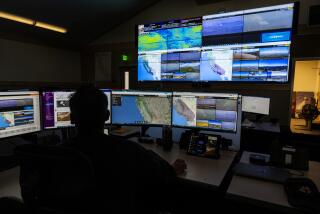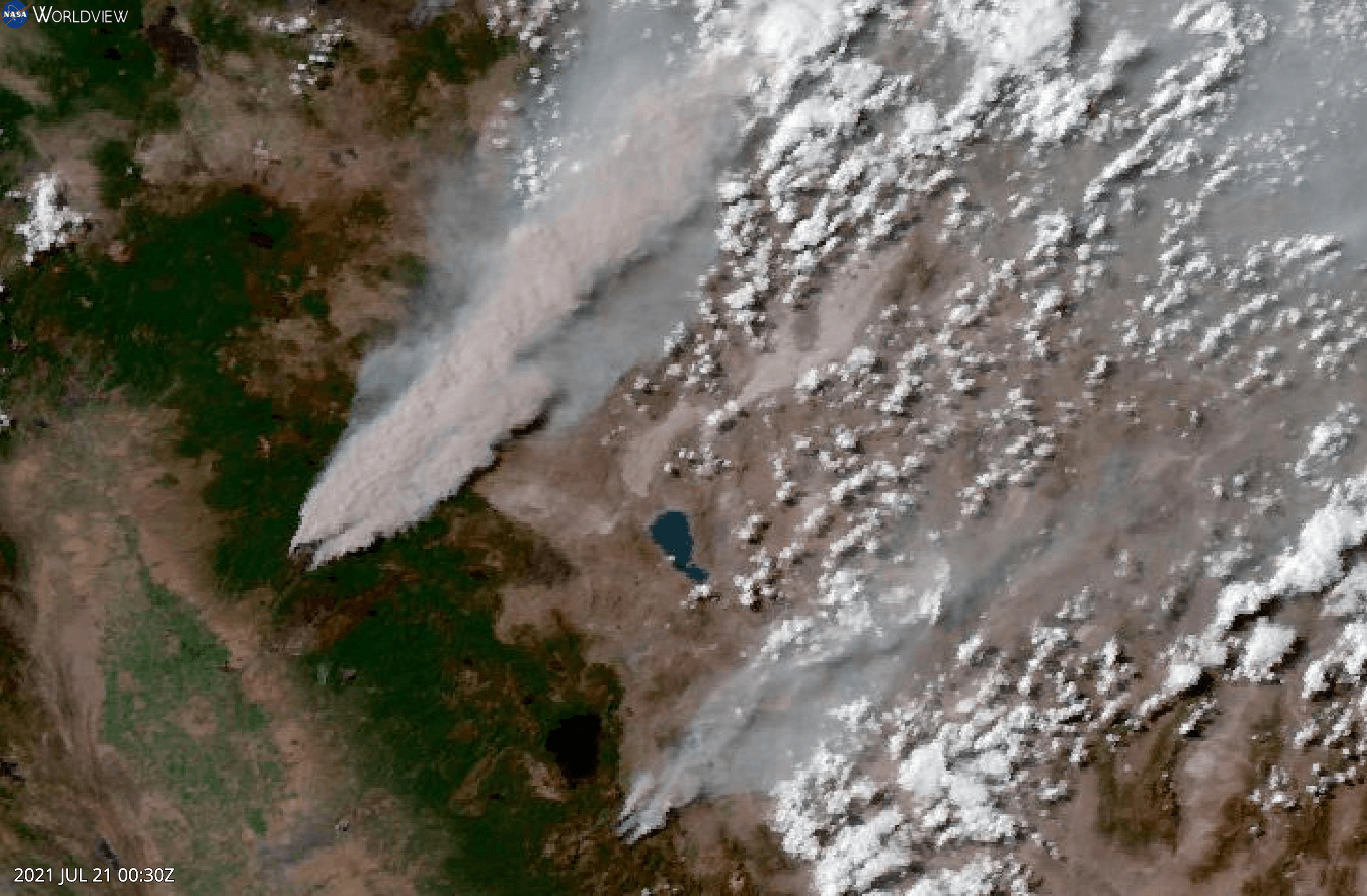CIA Chief Sees Environmental Role for Satellites
- Share via
With spying on Soviet military targets a thing of the past, U.S. surveillance satellites will focus more on environmental threats to world stability such as erupting volcanoes and shifting desert sands, CIA Director John M. Deutch said Thursday in Beverly Hills.
In a speech to the Los Angeles World Affairs Council, Deutch said the changing role of CIA spy satellites reflects a new emphasis on environmental vigilance and the belief that global tensions increasingly are tied to the health of natural resources.
“National reconnaissance systems that track the movement of tanks through the desert, can, at the same time, track the movement of the desert itself, see the sand closing in on formerly productive fields or hillsides laid bare by deforestation or erosion,” Deutch said to an audience of several hundred people at the Beverly Hilton Hotel.
“Adding this environmental dimension to traditional political, economic and military analysis enhances our ability to alert policymakers to potential instability, conflict or human disaster and to identify situations which may draw in American involvement.”
Deutch announced the recent formation of a task force of government scientists that will make use of CIA satellite data to study the environmental impact of accidents like last year’s oil spill in the Komi region of Russia.
The task force, Deutch said, “will give scientists an ongoing record of changes in the Earth that will improve their understanding of environmental processes. More importantly, it will greatly enhance their ability to provide strategic warning of potential [threats] to the health and welfare of our citizens.”
Last month, he said, the U.S. Forest Service asked and received the agency’s help in tracking wildfires in Alaska.
“Within 24 hours of the initial request, we delivered a map depicting the fire perimeter, smoldering fires and the most intense blazes,” he said.
“This information was more comprehensive and detailed than data collected from overflights by civil aircraft, and it was available much more quickly than would have otherwise been possible.”
Moreover, he said, the agency’s data already are being shared with foreign countries.
“When a volcano on the Caribbean island of Montserrat awakened in 1995 we monitored significant changes and alerted U.S. and West Indies aid and military authorities,” he said. The agency’s information enabled local authorities to evacuate 4,000 people to a less dangerous part of the island.
He said that elsewhere in the world, the CIA is sharing vital information about the environment with old adversaries.
Early this year, according to Deutch, Russia and the United States exchanged declassified imagery-derived diagrams of 25 years worth of environmental damage.
“This ongoing exchange will help both countries clean up toxic and radioactive sites,” he said.
At the same time, a CD-ROM atlas of the Arctic, jointly produced by the two countries, is enabling scientists to track the migration of radioactive waste dumped into the Techa River years ago from a Soviet nuclear power plant.
“Russian oceanographic data can help them and us to determine where radioactive materials will travel once they reach the Arctic Ocean and whether they will affect U.S. and Canadian waters,” he said.
Deutch stressed that the agency’s environmental research, done with technology already in hand, costs little--”perhaps one-tenth of a percent of the intelligence budget for collection and analysis”--and requires no new capital investments.
Nor is the agency entirely new to the work.
He said that the CIA has long used satellite imagery to estimate crop size in North Korea and other nations where food shortages could lead to instability.
In other instances, Deutch said that environmental analysis enabled the agency to assess the magnitude of the Chernobyl nuclear power plant accident after Moscow provided “misleading information.” And during the Gulf War, he said, “We were able to tell U.S. troops how to avoid lethal hydrogen sulfide from oil fires” set by Saddam Hussein’s forces.
Environmental monitoring will continue to provide the military with information on the terrain and resources of unfamiliar places, Deutch said.
More to Read
Sign up for Essential California
The most important California stories and recommendations in your inbox every morning.
You may occasionally receive promotional content from the Los Angeles Times.













